
Bissan Al-Lazikani
The Institute of Cancer Research, UK
EMBL Conference
EMBL is committed to sharing research advances and sustaining scientific interaction throughout the coronavirus pandemic. We are delighted to announce that this conference is going virtual and invite you to join us online.
Join this conference and celebrate the 50th anniversary of The Protein Data Bank (PDB) with us. With over 1 million unique users worldwide and more than 400 biomedical data resources, the PDB represents the achievements and milestones of the structural biology community.
The PDB is one of the oldest surviving archives in any biomedical field. The structural biology community established the single worldwide archive for macromolecular structure data in 1971. The PDB has embraced a culture of open access leading to its widespread use by the research community (with nowadays more than 1 million unique users worldwide) and by more than 400 biomedical data resources.
Structural biology and structural bioinformatics have had an enormous impact on our understanding of the mechanism and function of biological macromolecules. The PDB acts as a custodian for all these data, representing the achievements and milestones of the structural biology community.
The archive is managed by the Worldwide Protein Data Bank consortium (wwPDB) which includes partner sites in Asia, Europe and America, making this a truly global effort. The 50th anniversary is an opportunity to celebrate the advances in structural biology and bioinformatics and peer into the future prospects for these fields.
Session topics:
Call for artwork by 8 September 2021
An artwork exhibition will be part of the conference, bringing awareness to the 50th anniversary of the PDB. The conference participants can submit an artwork representing scientific and/or societal concepts relating to a structure in the Protein Data Bank. The artwork can be created using any technique or media, however, we will require a high-resolution image of the artwork for display in the virtual exhibition.
More information about submitting an artwork or abstract can be found under the tab ‘Practical Information’.

The Institute of Cancer Research, UK
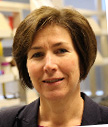
University Health Network, Canada

St. Jude Children’s Research Hospital, USA
University of Washington
USA

Walter and Eliza Hall Institute of Medical Research, Australia

Stanford University, USA
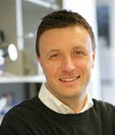
Max Planck Institute for Biophysical Chemistry, Germany
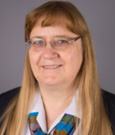
Arizona State University, USA

ETH Zurich, Switzerland
University of Zurich, Switzerland

DeepMind, UK
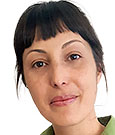
EMBL Heidelberg, Germany
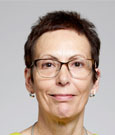
University College London, UK

MRC Laboratory of Molecular Biology, UK
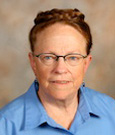
Duke University School of Medicine, USA
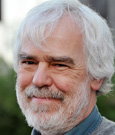
University of Oxford, UK

Friedrich Miescher Institute for Biomedical Research
Switzerland

EMBL-EBI Hinxton
UK
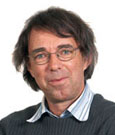
EMBL Grenoble
France

EMBL-EBI Hinxton
UK

EMBL Heidelberg
Germany

University College London
UK

EMBL-EBI Hinxton
UK
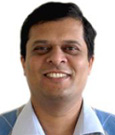
EMBL-EBI Hinxton
UK
Got something to say? Tweet it! #EMBLPDB
| Time (CEST) | Speaker |
|---|---|
| 11:00-11:15 | Opening remarks by Scientific Organisers |
| Introductory Session – Session Chair: Gerard Kleywegt | |
| 11:15-11:45 | Historical perspective of the PDB – the archive that led the way to open science Jane Richardson – Duke University School of Medicine, USA Janet Thornton – EMBL-EBI Hinxton, UK AVAILABLE ON DEMAND AFTER LIVE STREAM |
| 11:45-12:15 | Advances in Structural Virology Dave Stuart – University of Oxford, UK AVAILABLE ON DEMAND AFTER LIVE STREAM |
| 12:15-12:45 | How Representative is the Protein Databank of All the Protein Structures in Nature? Christine Orengo – University College London, UK AVAILABLE ON DEMAND AFTER LIVE STREAM |
| 12:45-13:15 | Meet the Speakers |
| 13:15-13:30 | Break |
| 13:30-14:30 | Poster session 1/Artwork exhibition |
| Session 1: Structural biology & applications in health and the environment – Session Chair: Matthias Wilmanns | |
| 14:30-15:00 | Haven’t got a glue: reprogramming ubiquitin ligases with molecular glue degraders Nicolas Thomä – Friedrich Miescher Institute for Biomedical Research, Switzerland |
| 15:00-15:15 | Structure of Escherichia coli respiratory complex I reconstituted into lipid nanodiscs reveals an uncoupled conformation Piotr Kolata – Center for Structural Biology, Vlaams Instituut voor Biotechnologie, Belgium AVAILABLE ON DEMAND AFTER LIVE STREAM |
| 15:15-15:45 | Exploiting structures and Big Data for drug discovery Bissan Al-Lazikani – The Institute of Cancer Research, UK AVAILABLE ON DEMAND AFTER LIVE STREAM |
| 15:45-16:00 | Break |
| 16:00-16:15 | The structure of the native CNGA1/CNGB1 CNG channel from retinal rods Jacopo Marino – Paul Scherrer Institut, Switzerland |
| 16:15-16:45 | The Structural Genomics Consortium (SGC): structural biology to illuminate the dark proteome and catalyze drug discovery Cheryl Arrowsmith – University Health Network, Canada AVAILABLE ON DEMAND AFTER LIVE STREAM |
| 16:45-17:15 | Meet the Speakers |
| 17:15-18:00 | Optional networking programme: Quiz time The Great PDB50 Quiz – Anybody can win! (It’s that hard.) |
| 17:45-18:15 | Meet the Editor Session in break-out-rooms – Trends in Biochemical Sciences – Sannie Culbertson – Nature Communications – Karin Kuehnel – Nature Methods – Allison Doerr – Nature Structural & Molecular Biology – Carolina Perdigoto |
| Time (CEST) | Speaker |
|---|---|
| Session 2: RNA/DNA molecular machines – Session Chair: Stephen Cusack | |
| 11:00-11:30 | Structural studies of gene transcription and viral replication Patrick Cramer – Max Planck Institute for Biophysical Chemistry, Germany AVAILABLE ON DEMAND AFTER LIVE STREAM |
| 11:30-11:45 | Complex nucleoprotein assemblies promote antibiotic resistance spreading Georgy Smyshlyaev – EMBL Heidelberg, Germany AVAILABLE ON DEMAND AFTER LIVE STREAM |
| 11:45-12:15 | Macromolecular machines involved in mRNA 3′-end processing Lori Passmore – MRC Laboratory of Molecular Biology, UK AVAILABLE ON DEMAND AFTER LIVE STREAM |
| 12:15-12:30 | Break |
| 12:30-12:45 | Bridging of DNA breaks activates PARP2–HPF1 to modify chromatin Silvija Bilokapic – St. Jude Children’s Research Hospital, USA AVAILABLE ON DEMAND AFTER LIVE STREAM |
| 12:45-13:15 | Molecular mechanisms of CRISPR-associated genome editor nucleases and transposons Martin Jinek – University of Zurich, Switzerland AVAILABLE ON DEMAND AFTER LIVE STREAM |
| 13:15-13:45 | Meet the Speakers |
| Session 3: The next 50 years: Genomics meets structural biology – Session Chair: Christine Orengo | |
| 13:45-14:45 | Poster Session 2/Artwork exhibition |
| 14:45-15:15 | Enzyme engineering Don Hilvert – ETH Zürich, Switzerland AVAILABLE ON DEMAND AFTER LIVE STREAM |
| 15:15-15:30 | PDB-wide identification of physiological hetero-oligomeric assemblies based on conserved quaternary structure geometry Sucharita Dey – Indian Institute of Technology Jodhpur, India AVAILABLE ON DEMAND AFTER LIVE STREAM |
| 15:30-16:00 | Structural and systems biology – understanding variation Madan Babu – St Jude Children’s Research Hospital, UK AVAILABLE ON DEMAND AFTER LIVE STREAM |
| 16:00-16:15 | Break |
| 16:15-16:45 | AlphaFold and the role of deep learning in structural biology John Jumper – DeepMind, UK AVAILABLE ON DEMAND AFTER LIVE STREAM |
| 16:45-17:15 | The coming of age of de novo protein design David Baker – University of Washington, USA AVAILABLE ON DEMAND AFTER LIVE STREAM |
| 17:15-17:45 | Meet the Speakers |
| 17:45-18:15 | Optional networking programme: Speed networking |
| Time (CEST) | Speaker |
|---|---|
| Session 4: Latest advances – Session Chair: Christoph Müller | |
| 11:00-12:00 | Respiration: The dynamic multi-enzyme pathway from Glucose to ATP Drew Berry – Walter and Eliza Hall Institute of Medical Research, Australia AVAILABLE ON DEMAND AFTER LIVE STREAM |
| 12:00-12:20 | The structural changes of phytochrome photoactivation revealed by femto- and picosecond serial femtosecond X-ray crystallography Madan Kumar Shankar – Gothenburg University, Sweden AVAILABLE ON DEMAND AFTER LIVE STREAM |
| 12:20-12:40 | Quantifying radiation damage to protein crystal structures in the PDB Kathryn Shelley – University of Bristol, UK AVAILABLE ON DEMAND AFTER LIVE STREAM |
| 12:40-13:00 | Refactoring the B-factor: intuitively extracting structural dynamics from macromolecular disorder Nicholas Pearce – Vrije Universiteit Amsterdam, Netherlands AVAILABLE ON DEMAND AFTER LIVE STREAM |
| 13:00-13:30 | Meet the Speakers |
| 13:30-13:45 | Break |
| Session 5: The next 50 years: future perspectives (part 1) – Session Chair: Janet Thornton | |
| 13:45-14:15 | Enabling discovery by in-cell structural biology Julia Mahamid – EMBL Heidelberg, Germany AVAILABLE ON DEMAND AFTER LIVE STREAM |
| 14:15-14:45 | Femtosecond Crystallography with XFELs: From static pictures to dynamics of biomolecules in action Petra Fromme – Arizona State University, USA AVAILABLE ON DEMAND AFTER LIVE STREAM |
| 14:45-15:00 | Break |
| Session 6: The next 50 years: future perspectives (part 2) – Session Chair: Janet Thornton | |
| 15:00-15:30 | Cryo-EM of RNA at Near Atomic Resolutions Wah Chiu – Stanford University, USA AVAILABLE ON DEMAND AFTER LIVE STREAM |
| 15:30-16:00 | Making structural data accessible Sameer Velankar – EMBL-EBI Hinxton, UK AVAILABLE ON DEMAND AFTER LIVE STREAM |
| 16:00-17:00 | Panel Discussion on the future of structural biology and the PDB Chaired by Peter Rosenthal Panelists: Wah Chiu, Petra Fromme, Don Hilvert, John Jumper, Jan Kosinski, Julia Mahamid AVAILABLE ON DEMAND AFTER LIVE STREAM |
| 17:00-17:15 | Closing remarks by the Scientific Organisers |
| 17:15-17:45 | Meet the Speakers |
Registration Fees (include access to all of the talks, digital poster sessions and online group discussions, and help us cover our costs to run the event. For further information please refer to the FAQ page):
| Academia – PI/Faculty | 75 Euro |
| Academia – Post-doc | 50 Euro |
| PhD Student/Emeritus/Retired | 15 Euro |
| Industry | 200 Euro |
| EMBL Staff | Intranet access |
Accredited journalists may be eligible to register for a complimentary registration. Registrants may be required to provide accreditation or equivalent proof of press membership after registration. Please contact Aline Schnieder for more information.
Registration will be on a first-come first-served basis. Your place can only be confirmed after payment of the registration fee.
Types of payments accepted are international bank transfers and credit card payments.
Artwork submission deadline: 8 September 2021 (23:59 Europe/Berlin)
Only registered participants are eligible to submit an artwork. We only accept online artwork submissions.
The artwork should be an original piece of art representing scientific and/or societal concepts relating to a structure in the Protein Data Bank. The artwork can be created using any technique or media, however we will require a high resolution image of the artwork for display in the virtual exhibition.
After you have logged in and successfully registered, you will receive an email asking you to submit your artwork. Click on the link provided and enter your artwork. Alternatively you can submit your artwork by clicking on the link on the confirmation page directly after registering.
A selection process will take place with the results announced 2-3 weeks after the artwork submission deadline.
Abstract submission deadline: 15 September 2021 (23:59 Europe/Berlin)
Late abstracts for poster presentations are accepted until 27 September (23:59 Europe/Berlin)
Only registered participants are eligible to submit an abstract. We only accept online abstract submissions.
After you have logged in and successfully registered, you will receive an email asking you to submit your abstract. Click on the link provided and enter your abstract in the text box provided. Alternatively you can submit your abstract by clicking on the link on the confirmation page directly after registering.
When submitting your abstract you can also apply for an oral or poster presentation. A selection process will take place with the results announced 2-3 weeks after the abstract submission deadline.
All academic and student registrants are invited to apply for a registration fee waiver, provided by the EMBL Advanced Training Centre Corporate Partnership Programme and EMBO. The registration fee waiver covers the registration sum that you have paid to attend the meeting. Conference participants are not required to pre-pay the registration fee to be selected for a fee waiver for a virtual meeting. If you have already paid the registration fee and are awarded a fee waiver, it will be reimbursed after the meeting.
For participants and speakers with childcare responsibilities there is the possibility to apply for a grant, provided by the EMBL Advanced Training Centre Corporate Partnership Programme and EMBO, to offset childcare costs incurred when participating at a virtual event. Eligible costs include fees for a babysitter or childcare facility or travel costs for a care giver. Please note that priority will be given to early stage researchers. Costs will be reimbursed after the meeting only once a reimbursement form and original receipts have been received. Attendance at the event is required in order to be eligible to receive the reimbursement. In order to apply for this grant, you must be registered by the abstract submission deadline.
Applications for financial assistance can be submitted via the submission portal* (for the submission of abstracts for conferences) by completing the Financial Assistance Application Section (underneath the section for entering abstract/motivation letter information). The link to the portal can be found in the registration confirmation email that you will receive after registering for the conference.
For conferences, if you are not submitting an abstract, you can still apply for financial assistance in the submission portal. Take a look at the instructions for applying for financial assistance. Note that priority will be given to those submitting an abstract to present at the conference. In your application you will be asked to answer questions regarding your motivation for applying, and, for registration fee waivers, the reasons why your lab cannot fund your attendance and how your attendance will make a difference to your career. Application for financial support will not affect the outcome of your registration application.
The scientific organisers will select the recipients of registration fee waivers during the abstract selection process for conferences and the participant selection process for courses. Results will be announced approximately 3 – 4 weeks before the event start date. Selection results do not impact your admission to the meeting. Registration fee waiver selection is based on your current work or study location, your motivation for applying, the reasons for needing financial support and the impact this event will have on your career. Childcare grants are allocated based on career stage, with priority given to early stage researchers.
Check our list of external funding opportunities and read our information on attending a conference as an event reporter.
For further information about financial assistance please refer to the FAQ page.
Please do:
Please don’t:
Additional information can be found in our Code of Conduct.
It is important to stay healthy and move around, especially when you are attending an event virtually. We have put together a few coffee break stretches and yoga videos in the events Slack workspace for you to enjoy during the event.
Questions during and after the talks can be asked in live streaming platform. The chair moderates the questions and shares them with the speaker. If time runs out or you think of a question later, you can use Slack to ask your questions in the dedicated session channels or via direct message.
The programme is planned based on Central European Summer Time (CEST), unless otherwise stated. As many virtual participants are attending from around the world, we do our best to accomodate as many timezones as possible when creating the programme. Please take your time zone into consideration when planning your attendance.
We are using a virtual event platform for this conference. More information about the platform will be shared ahead of the conference.
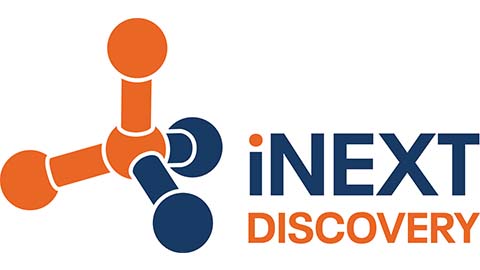
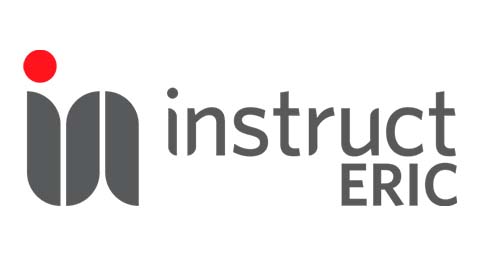

Media Partners
EMBO Journal, an EMBO Press journal
International Union of Biochemistry and Molecular Biology
Open Biology, a Royal Society journal
We offer a variety of event sponsoring possibilities, with the flexibility to select a set sponsorship package or combine individual sponsorship options to suit your event budget. Discounts are available for companies sponsoring multiple events at EMBL Heidelberg. View other conferences, or contact sponsorship@embl.de for further information.
If you are interested in becoming a media partner of this event, please visit our media partnerships webpage.
EMBL wishes to warn sponsors of EMBL conferences and courses of fraudulent schemes purporting to offer sponsorship opportunities on behalf of EMBL or affiliated with EMBL officials. One current scam campaign of which we are aware is conducted using the name ‘Judy Eastman’ (judy@gopcontact.a2hosted.com) and entails approaches to sponsors offering sponsorship opportunities on EMBL’s behalf. Please be kindly advised that all relevant communication regarding sponsorship of EMBL conferences, symposia and courses is handled by EMBL directly and is sent from an official EMBL account. EMBL does not work with any external providers on sponsorship acquisition.
Please also note that:
Suspicious communications purportedly from, for or on behalf of EMBL should be reported to EMBL at the following email address sponsoring@embl.de.

Date: 20 - 22 Oct 2021
Location: Virtual
Deadline(s):
Abstract submission: Closed
Registration: Closed
Organisers:
Contact: Aline Schnieder